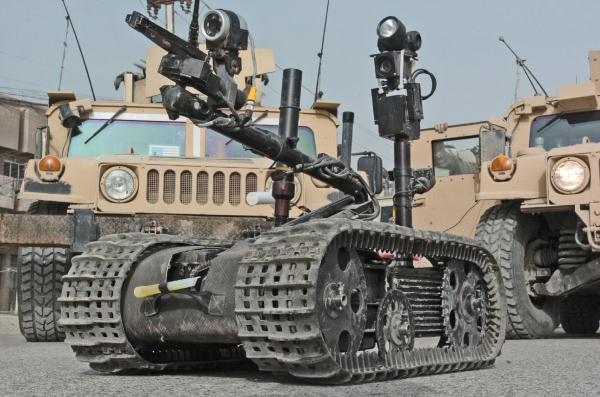By NOEL MURPHY
WAR ZONE robots are the latest high-tech pursuit of Deakin University, which is mounting a contest to pit the country’s brightest minds against military casualties.
Hurt Locker-type robots defusing bombs in military clashes are well-known but new robots able to work between themselves to accomplish missions are breaking new ground for scientists and military strategists alike.
And Deakin’s “Autonomous Ground Vehicles Competition’’ is out to help students gain more know-how about robotics in theory and in practice. And to save soldiers’ lives.
The competition is being run in tandem with the Defence Science and Technology Organisation to “push the technology envelope’’, according to chief defence scientist Alex Zelinsky.
Robots have been used extensively in Iraq and Afghanistan operations for reconnaissance, surveillance, countering IEDs (improvised explosive devices) and detecting and designating targets.
Recent research and development in areas such as robot vision, artificial intelligence, communications and sensors are propelling the Australian Army toward wider use of robots.
“Current military robots are tele-operated, that is, a human operator manipulates and controls the robot remotely,’’ says the contest’s official papers.
“While these systems are extremely useful, their employability is limited due to the level of task complexity typical in more demanding environments.
“Robotic system autonomy is a key technology area that can improve the military’s ability to operate in high threat environments without unacceptably increasing the risks faced by soldiers.’’
Entries will close mid-August with the competition, involving an outdoor obstacle course, staged at Deakin’s Waurn Ponds campus over four days from 28 November to 1 December.







